By clicking a retailer link you consent to third-party cookies that track your onward journey. This enables W? to receive an affiliate commission if you make a purchase, which supports our mission to be the UK's consumer champion.
Best sparkling wines: say 'cheers' to budget-friendly bubbles
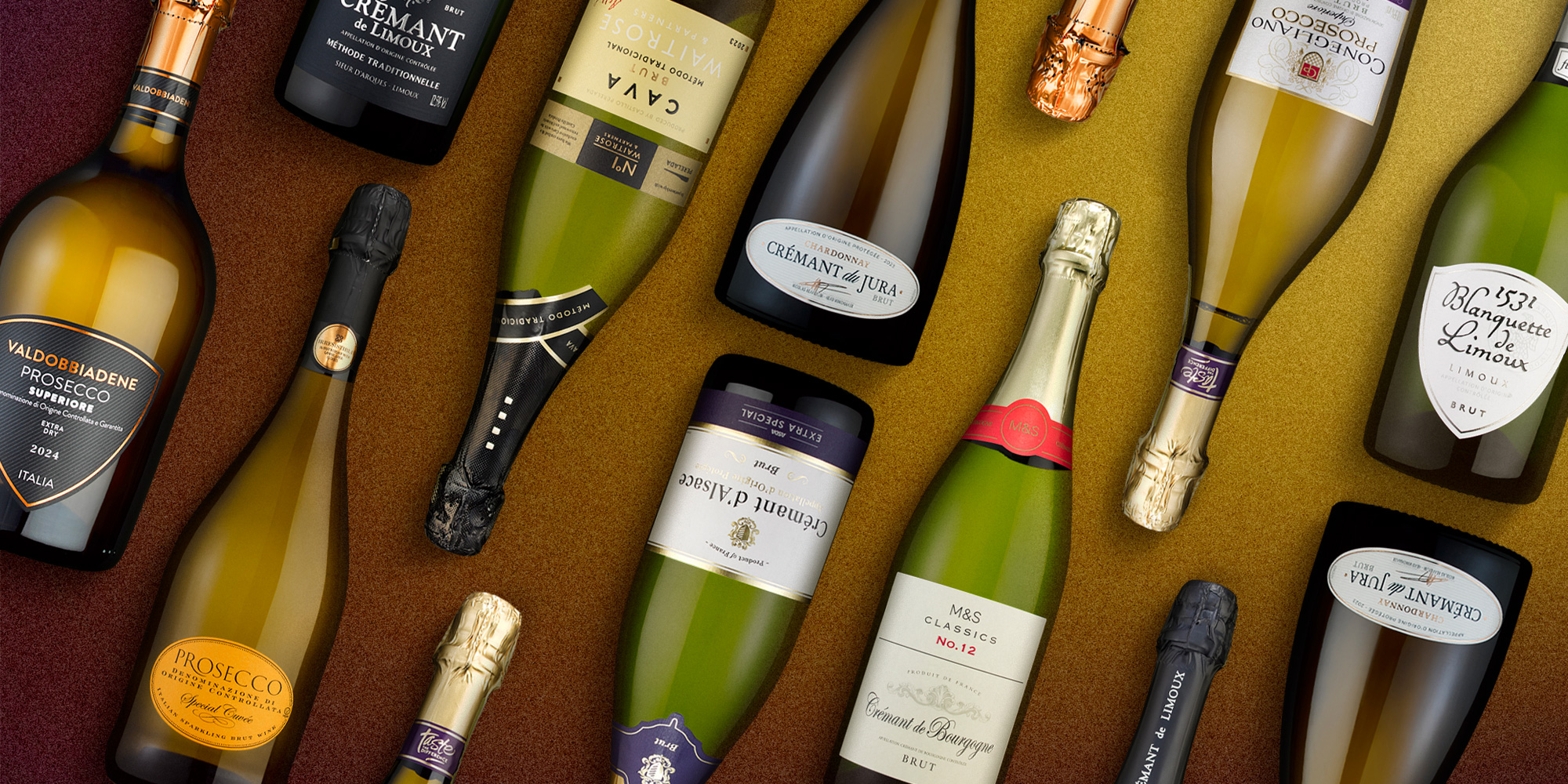
If you love fizz but not the price of champagne, there’s good news. We’ve popped, poured and tasted our way through prosecco, cava and crémant to uncover the best supermarket sparkling wines.
To find out which cheaper bubbles are best, we asked a panel of wine experts to blind-taste nine own-label sparkling wines priced £12.50 or less.
We found one standout supermarket Best Buy, as well as a Great Value fizz – both are well worth buying for celebrations at any time of the year.
How we tested sparkling wines
Expert panel
Our experts blind-sampled nine supermarket own-label sparkling wines priced £12.50 or less.
Independent
We bought every bottle ourselves, always paying the full price. We also bought a spare to double-check any questionable samples.
No labels
Wines were anonymised and tasted in a rotated order, so only flavour and quality counted.
Final verdict
After tasting and comparing notes, the panel agreed on scores. Only then did we reveal which sparkling wines were Best Buys and our Great Value picks.
Best sparkling wines
Only logged-in Which? members can view our full independent test results and tasting notes from the expert panel for every sparkling wine we tested below.
If you’re not yet a member, you’ll see an alphabetically ordered list of the sparkling wines we tested. To get instant access to these and all our reviews, join Which? today.
Aldi Specially Selected Crémant Du Jura 2023
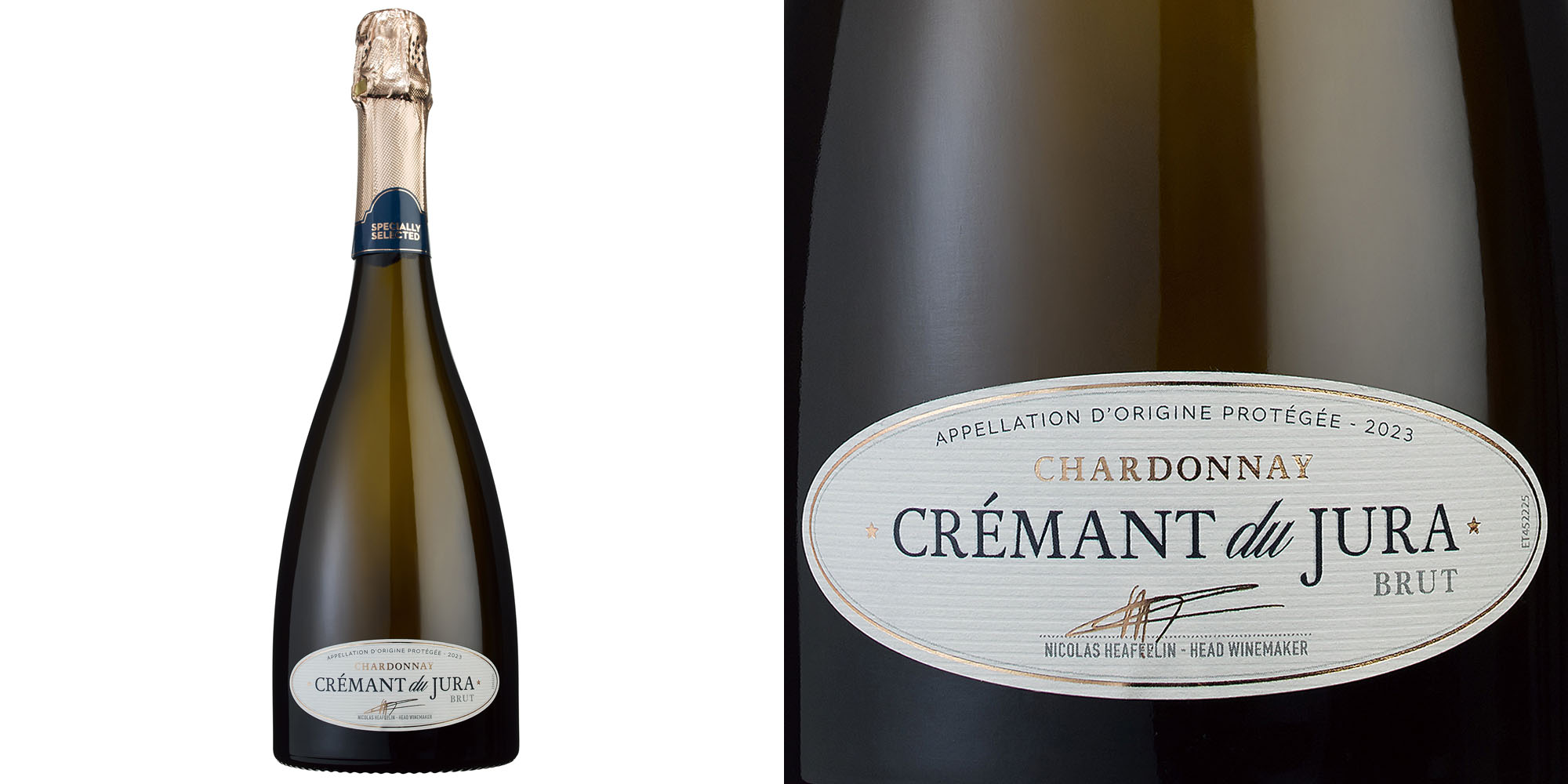
£11 for 75cl | France | 11.5% ABV
Tasting notes: Floral and fruity, from France's Jura region.
Want to buy without reading our results? Available from Aldi (in-store).
Asda Extra Special Crémant d'Alsace Brut
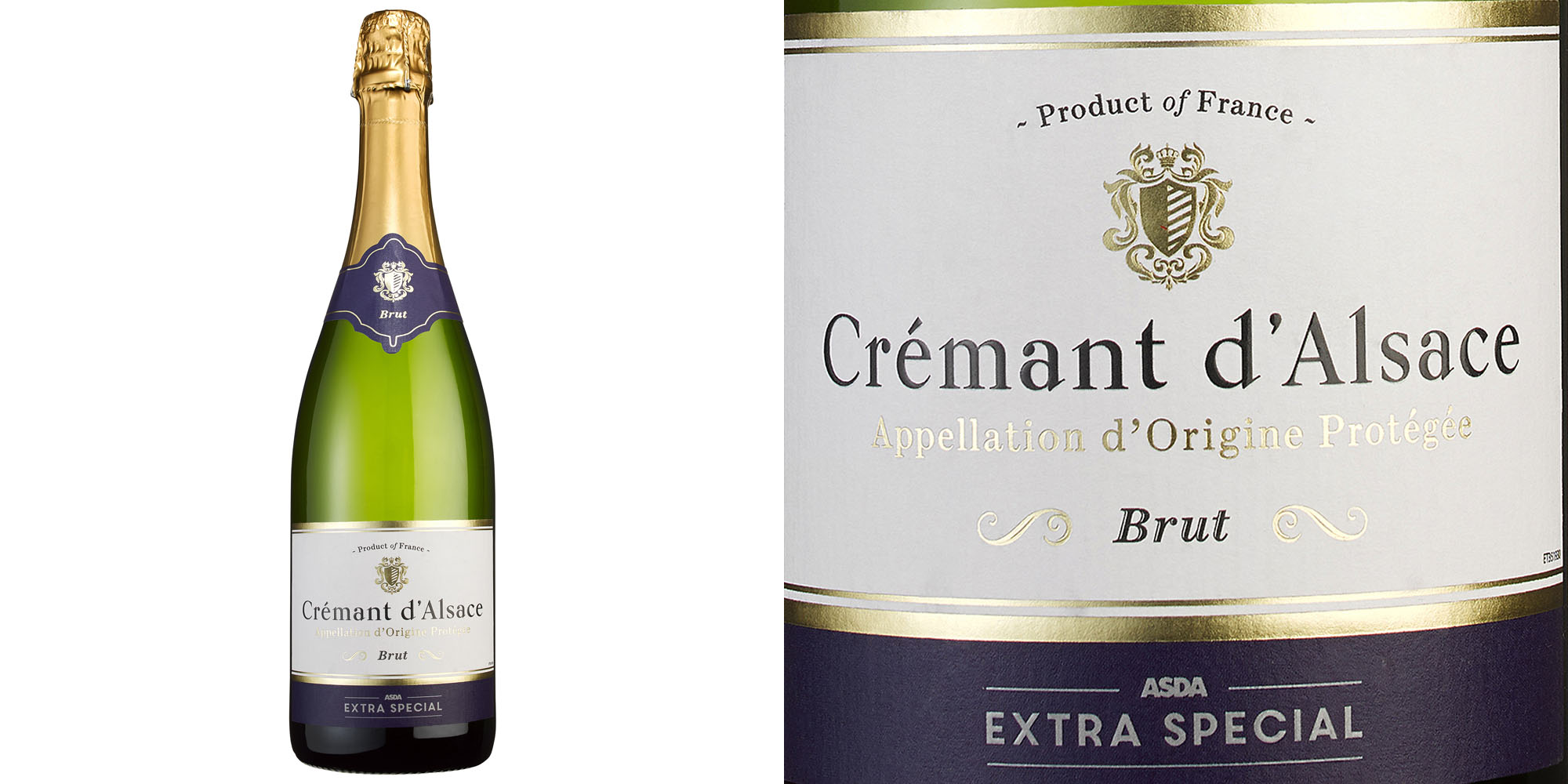
£10 for 75cl | France | 12% ABV
Tasting notes: Aromas are of pronounced zesty citrus and apple fruit with a light floral perfume.
Want to buy without reading our results? Available from Asda.
Co-op Irresistible Prosecco
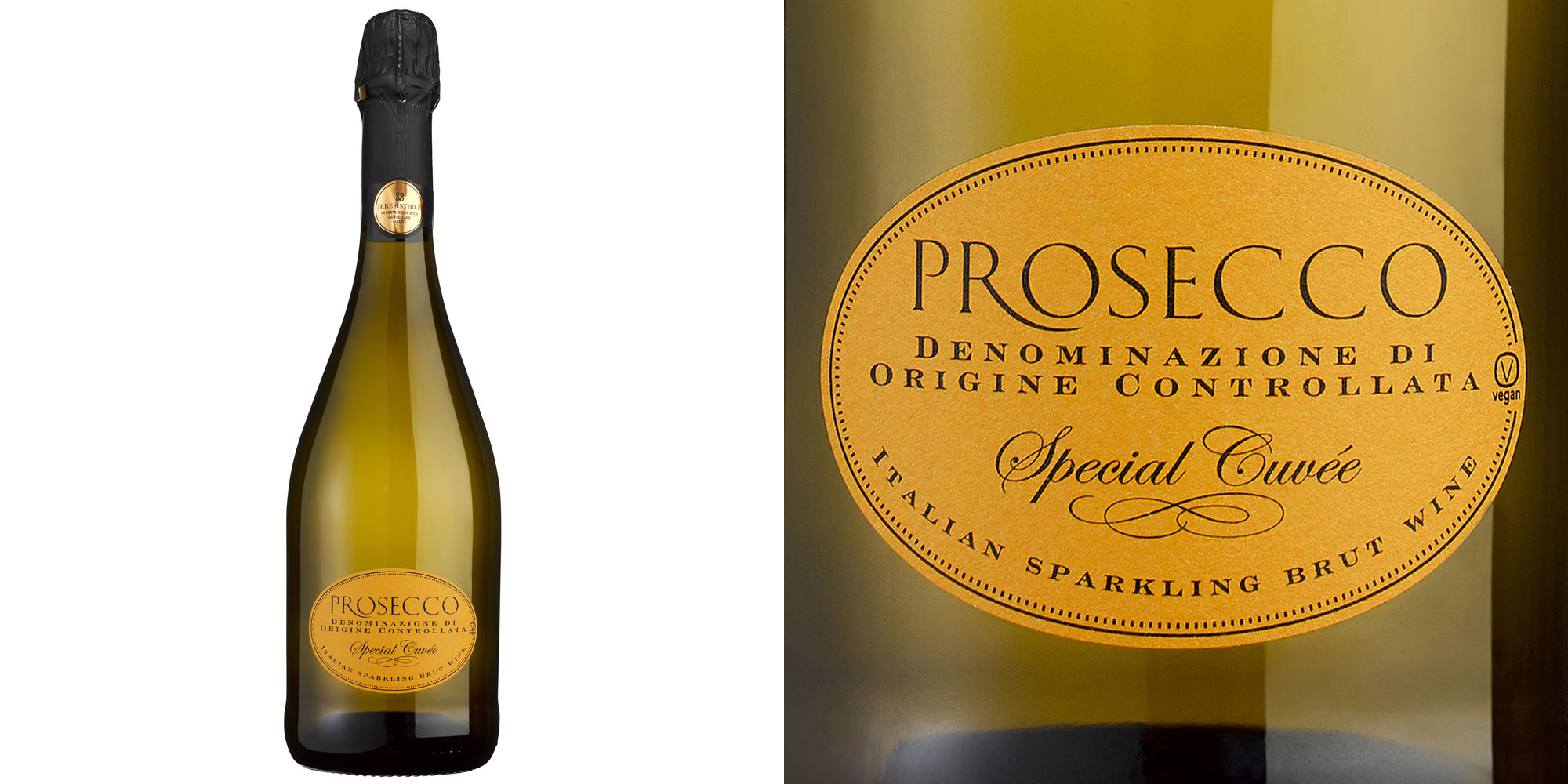
£8.70 for 75cl | Italy | 10.5% ABV
Tasting notes: Fruity and citrus, hints of floral.
Want to buy without reading our results? Available from Co-op.
Lidl Prosecco Valdobbiadene 2024
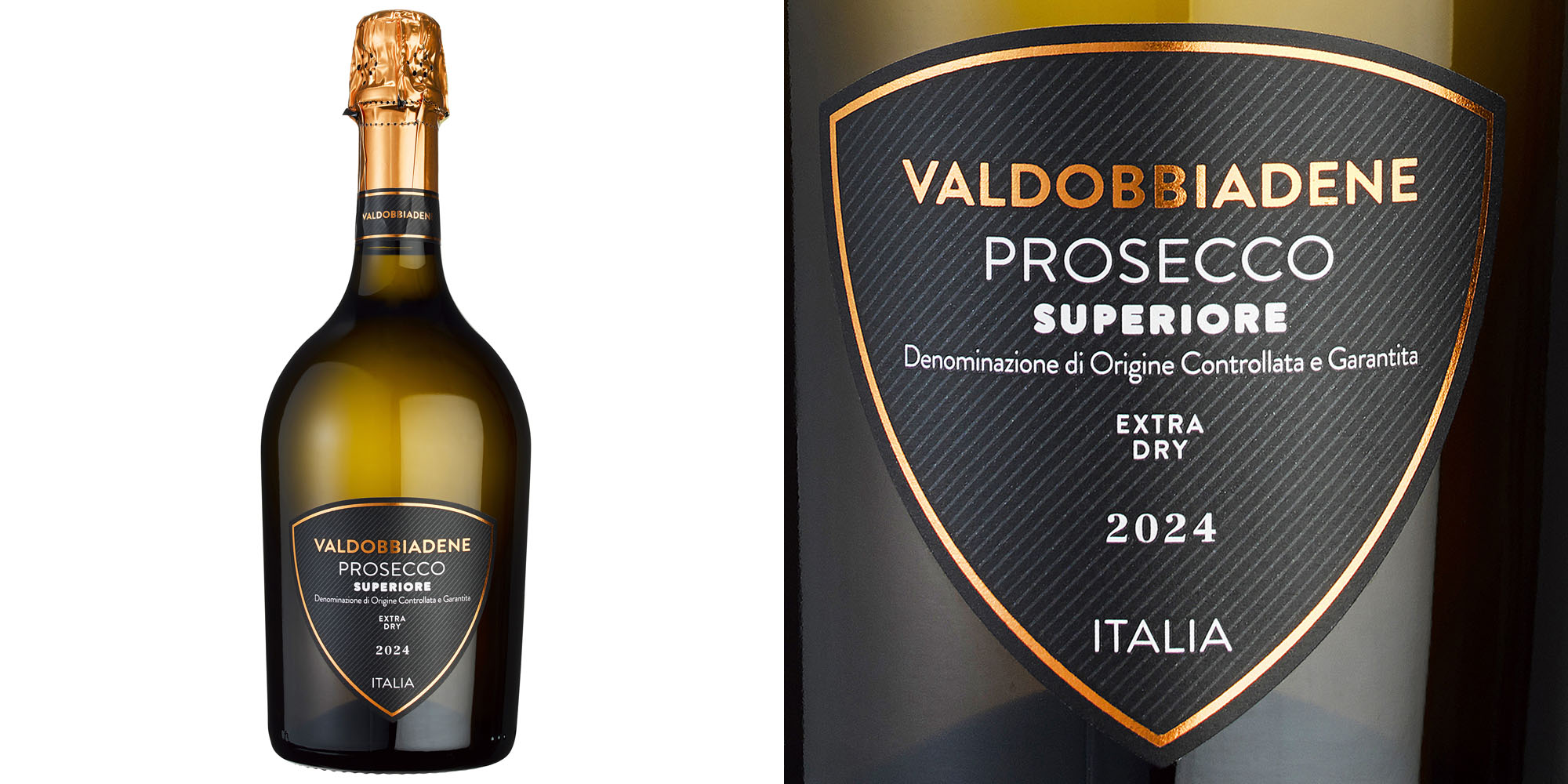
£8 for 75cl | Italy | 11% ABV
Tasting notes: Fine bubbles, luxurious aroma, with some fruity flair.
Want to buy without reading our results? Available from Lidl (in-store).
M&S Classics Crémant De Bourgogne
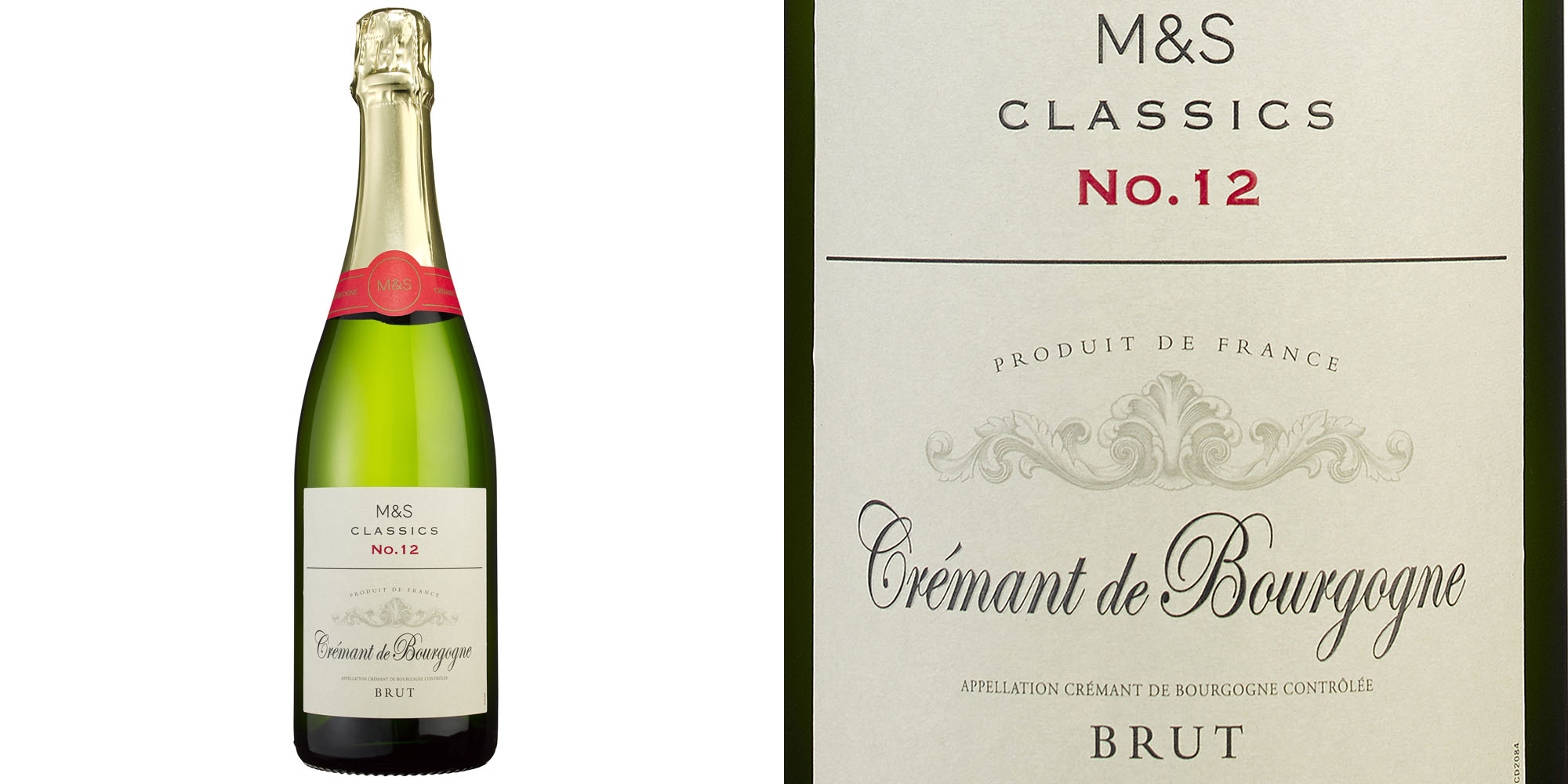
£12 for 75cl | France | Vegetarian and vegan | 12% ABV
Tasting notes: A sparkling white wine with flavours of peach blossom, apricot and redcurrants.
Want to buy without reading our results? Available from M&S (in-store) and Ocado.
Morrisons The Best Crémant de Limoux
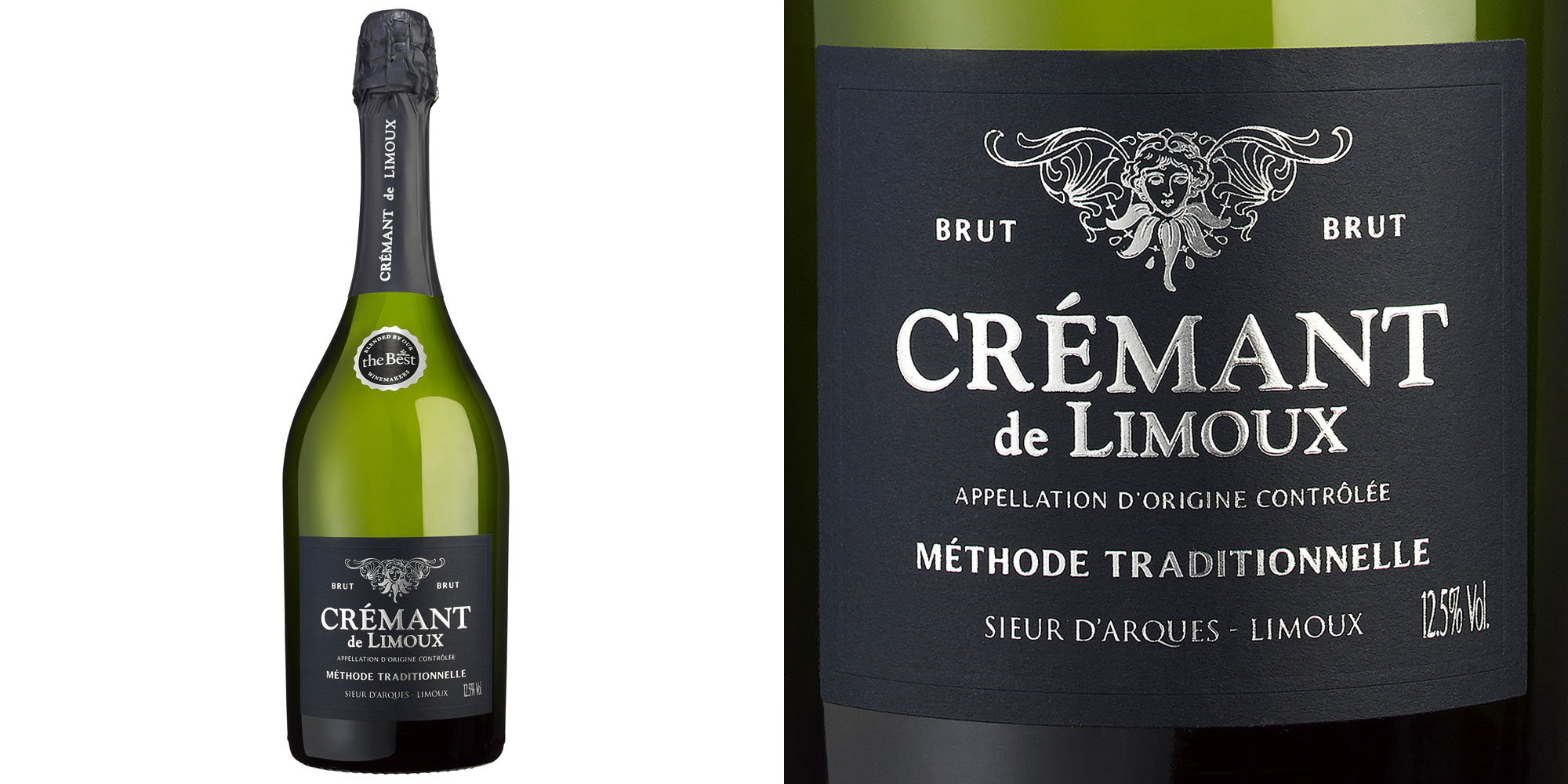
£12.25 for 75cl | France | Vegetarian and vegan | 12.5% ABV
Tasting notes: Honey and apple blossom aromas with apple crumble and lemon curd flavours.
Want to buy without reading our results? Available from Morrisons.
Sainsbury’s Taste The Difference Conegliano Prosecco 2024
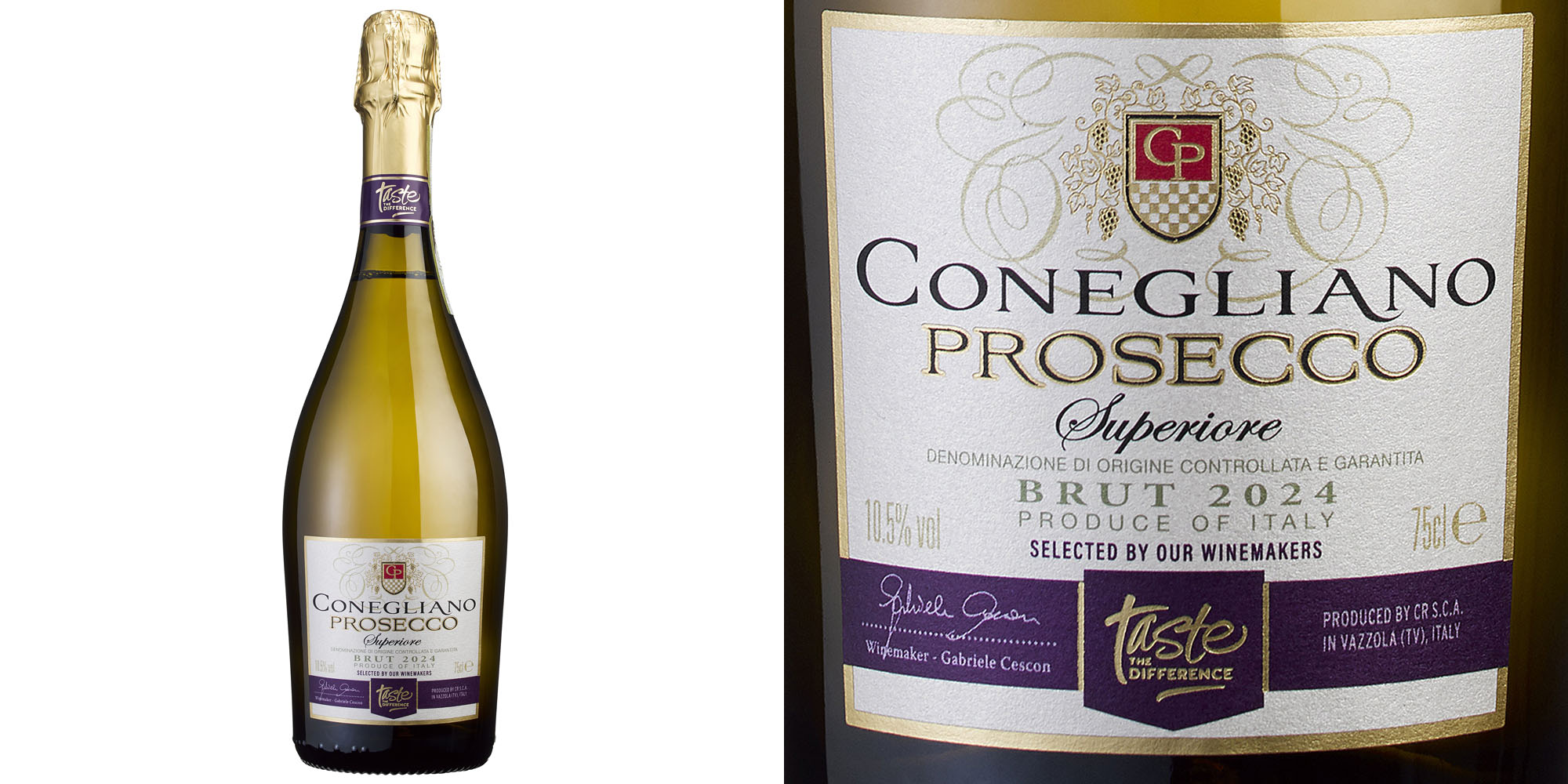
£10 for 75cl | Italy | Vegetarian and vegan | 10.5% ABV
Tasting notes: Delicate and fresh, with ripe apricot and zesty lemon flavours.
Want to buy without reading our results? Available from Sainsbury’s.
Tesco Finest 1531 Blanquette De Limoux
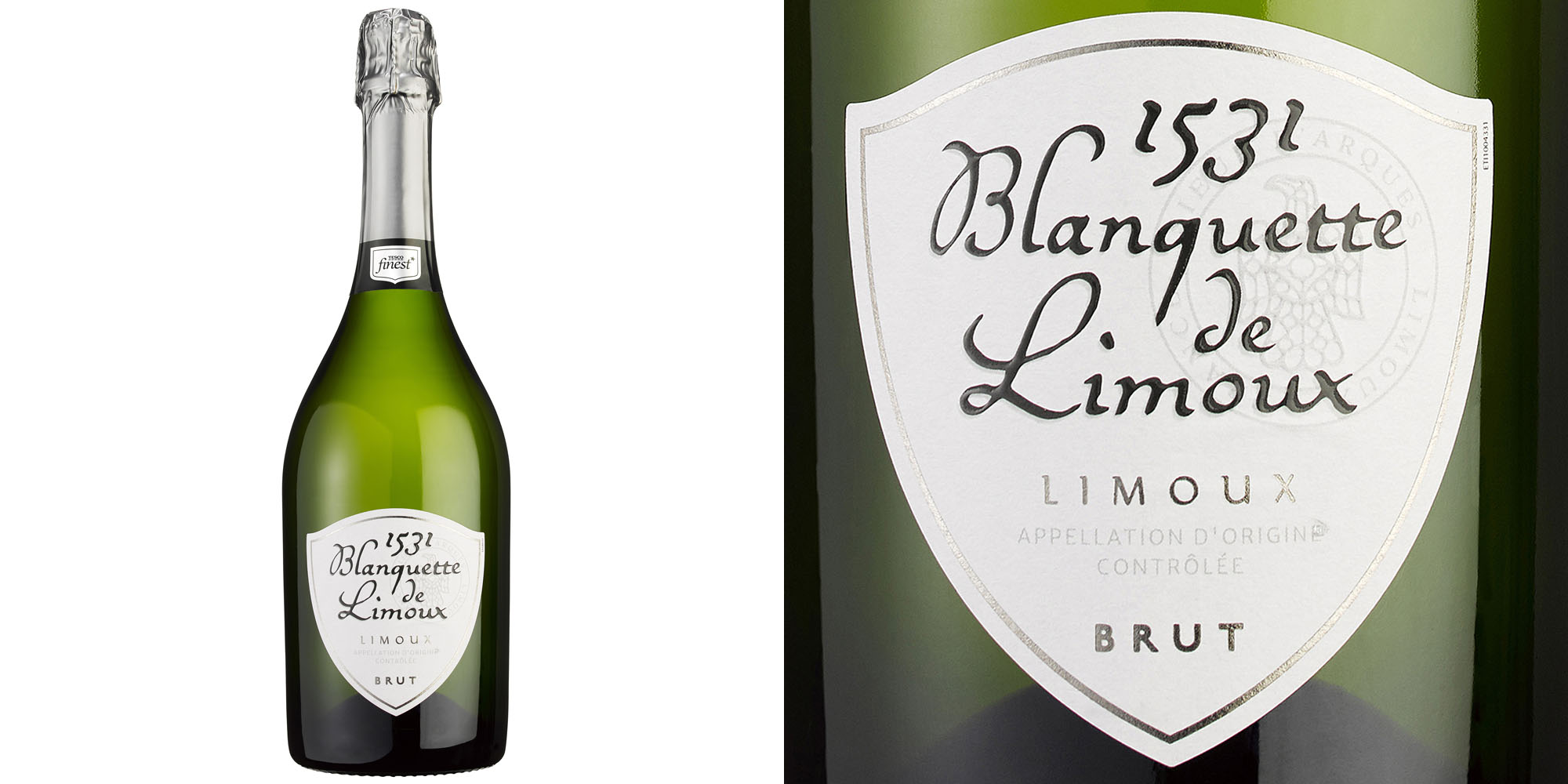
£10.50 for 75cl | France | Vegetarian and vegan | 12% ABV
Tasting notes: A sparkling wine with complex flavours of peach, apples and toasted brioche.
Want to buy without reading our results? Available from Tesco.
Waitrose No.1 Castillo Perelada Cava Brut 2023
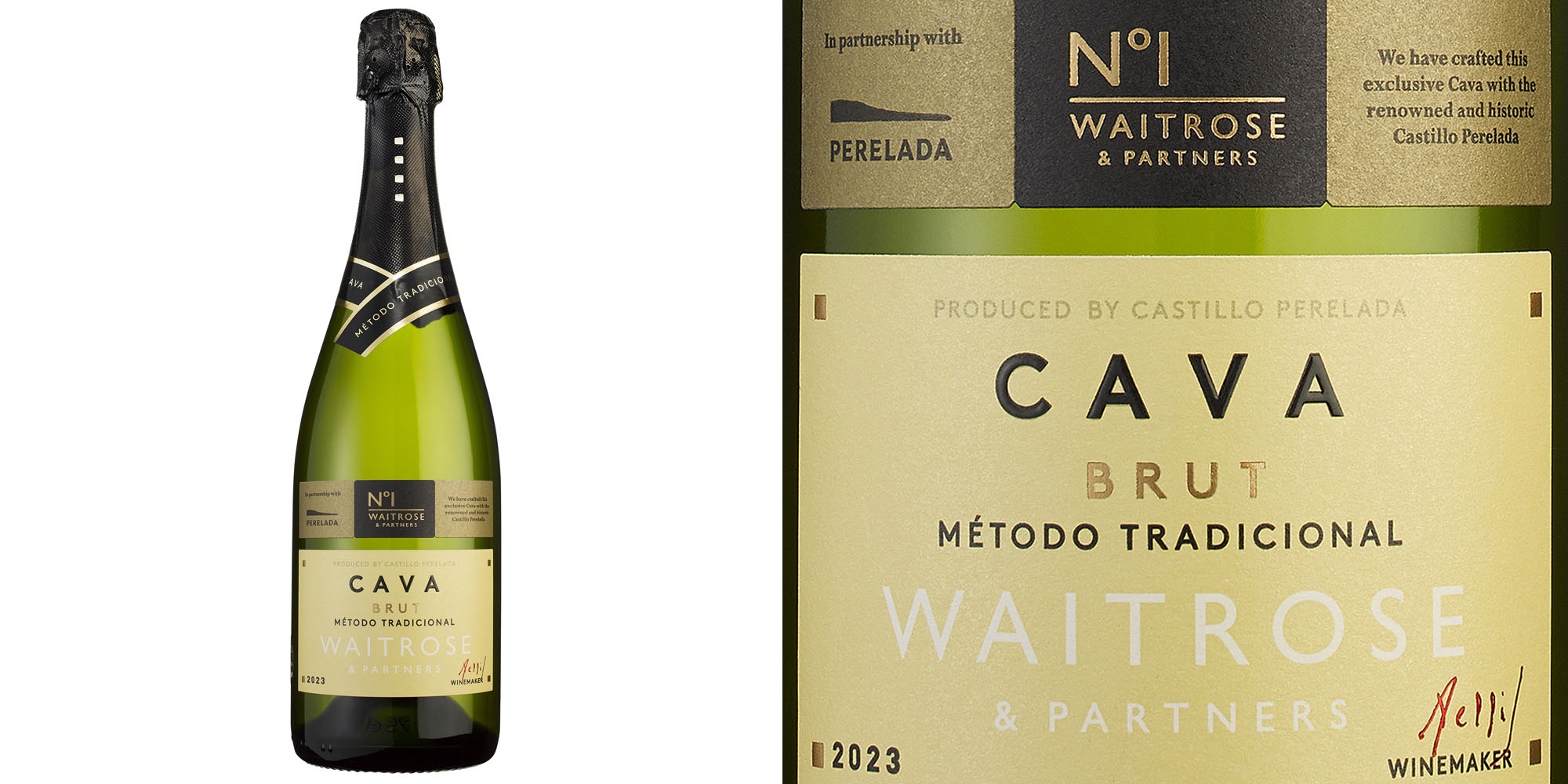
£12.50 for 75cl | Spain | Vegetarian and vegan | 11.5% ABV
Tasting notes: Delicate and fresh, the citrus fruitiness is complemented by a subtle bready character and a lingering, complex finish.
Want to buy without reading our results? Available from Waitrose.
Pricing and availability information correct as of November 2025.
How we test sparkling wines

Our panel of four independent wine experts blind-tasted 10 sparkling wines for our taste test, conducted in September 2025.
We asked supermarkets to nominate own-label, widely available sparkling white wines that aren’t as pricey as big-brand champagnes, but are still excellent for celebrations. They all had to cost between £5 and £17 (excluding special offers). We buy all our test samples ourselves. We may buy direct from the supermarket if the product isn't in stores yet, but we always pay for test products to maintain our independence.
Our expert tasting panel included:
- Sam Caporn MW Master of Wine, consultant, speaker, writer and co-chair of the International Wine Challenge (IWC)
- Peter McCombie MW Master of Wine, speaker, consultant and co-chair of the IWC
- Ray O'Connor MW Master of Wine, speaker, wine producer and consultant
- Helen McGinn Author, drinks writer, TV presenter and co-chair of the International Wine Challenge (IWC).
The taste test was 'blind', meaning we anonymised the wines so the panellists didn’t know which one they were trying.
Each expert tried the sparkling wines in a different order to avoid any bias. After all of them had been tasted, the panel agreed on a score for each bottle and which ones deserved to be Best Buys and Great Value. Only then did we reveal the products.
Why you can trust us: At Which? we're free from manufacturer and retailer influence. Find out more about our impartiality and how your support helps us to stay editorially independent.
Champagne vs cava vs crémant: sparkling wine types explained

Not sure how to tell your cava from your crémant? We explain the key differences between types of sparkling wine – and why some cost more than others – to help you choose.
Champagne
Champagne can be made only in the specific Champagne region in north-east France. It's almost always produced from a blend of three grapes: pinot noir, chardonnay and pinot meunier.
The bubbles come from a second fermentation that’s carried out inside the bottle. The carbon dioxide formed can’t escape, so it dissolves into the wine – which is why, when the bottle is opened, the wine sparkles.
Most champagne is dry and best served after a couple of hours in the fridge.
Cava
Cava is made in the same way as champagne, undergoing secondary fermentation in the bottle, but is produced in Spain.
It’s usually made from three Catalan grapes: macabeo, xarel-lo and parellada, although some of the large cava producers have started to use chardonnay and pinot noir as well.
The grapes mostly come from near Barcelona, much further to the sunny south than the Champagne region. That means they ripen more, which makes the cava lower in acidity than champagne (and often cheaper).
Crémant
Crémant is a French sparkling wine made using the same traditional method as champagne. It can have the same elegance, nutty complexity and balanced acidity. But as it’s not produced in the Champagne region, it can’t be given that name.
Crémant comes from eight regions of France – Alsace, Bordeaux, Burgundy, Die, Jura, Limoux, Loire and Savoie. Different grapes can be used, creating subtle differences. For example, Alsace crémant tends to be fruitier and aromatic, especially if riesling grapes are used. Bordeaux tastes citrussy, while Limoux crémant is quite floral.
The grapes used must be harvested manually and whole-bunch pressed, and then aged for a minimum of nine months.
If you’re looking for the champagne experience for less, our experts say that a good crémant usually fits the bill.
Discover the best-rated wine subscription services with our best wine clubs guide – we compare the big names
Prosecco
Prosecco comes from Italy and is usually slightly sweet or ‘off-dry’, light and delicate, and characterised by fruity citrus and apple notes. It's one of the cheaper sparkling wines, with supermarket bottles typically costing around £7-10.
Unlike champagne, cava and crémant, prosecco completes its secondary fermentation in a pressurised stainless steel tank, not in the bottle.
The difference in region and production process means it’s less comparable to champagne than cava or crémant, lacking the yeasty/biscuity undertones of champagne and crémant, and with lighter, looser bubbles.
Screw-top sparkling wine
You might have spotted screw-top sparkling wine on the shelves at temptingly low prices, sometimes just £5 or even less. It tends to be cheaper than corked sparkling wine, but our wine experts warn that it can be inferior in quality.
Like prosecco, this is tank-fermented. The second fermentation takes place in a large stainless steel tank with sugar and yeast, and the resulting carbon dioxide gas dissolves into the wine.
Low-alcohol sparkling wine

Finding a good low-alcohol wine can be challenging, as alcohol plays a key role in giving wine body and structure.
Our experts recommend choosing wines with a naturally lower alcohol content as a result of being grown in cooler climates. For example, German riesling wine can be as low as 7% ABV, compared with other wines which are typically around 13% ABV.
You could also try swapping to non-alcoholic alternatives such as elderflower cordial or kombucha flavoured with lemon and ginger, which mimics the fiery warmth of a boozy drink.
See our experts' pick of the best alcohol-free fizz
4 tips to get the most from your fizz

1. Wait before you sip
Decanting fizz can help to bring out the flavours that would otherwise be hidden by bubbles, but that doesn’t mean you need to fork out for a fancy carafe.
Simply pour your sparkling wine into a glass a couple of minutes before you plan on drinking it. This allows the bubbles to settle enough without disappearing completely.
2. Keep it chilled
Pop your sparkling wine into the fridge at least a couple of hours before you plan to serve it. Allow a little more time if you need to chill multiple bottles at once (you might want to check out the best wine coolers).
When you’re ready to serve it, place your fizz in a container filled with water and ice, as this is better than using ice alone. As a last resort, you can pop the bottle in the freezer, but make sure you remember to take it out in 20 minutes or less.
It’s best to leave your sparkling wine for around 10 minutes before pouring, otherwise you’ll stunt the taste and aroma.
3. Pour with precision
If you’re hosting guests this Christmas, pour a little bit of sparkling wine in the bottom of each glass just before they arrive. This will prevent it from frothing over when you come to serve it.
When your glass is being refilled, hold it lower down and slightly tilted, as this will make it easier for your host to pour – and you’ll probably end up with more fizz in your glass.
4. Choose your glass wisely
Flutes are often a favourite for fizz, but our experts warn that this means you can’t get your nose into the glass – and you need to smell in order to taste. They recommend trying a standard wine glass, or a coupé glass if you prefer.
Best champagne – see our top picks from the supermarkets, including the best value champagnes to buy
Sparkling wine preservers
If you’ve been left with a half-finished bottle, a sparkling wine preserver can help to stop your fizz from going flat.
Wine preservers work by maintaining the pressure in the bottle, which helps to keep it fizzy for longer. They’re particularly useful for prosecco, which is tank-fermented and tends to lose its fizz more quickly than champagne (which is bottle-fermented, creating finer bubbles).
You can buy sparkling wine preservers from a variety of retailers including Amazon, John Lewis, Ocado and Waitrose, with prices starting from around £5.
Our wine experts recommend opting for a preserver with wings that clip over the side of the bottle to keep it in place. Unsecured wine stoppers that aren’t designed for fizz can be potentially dangerous, as the high pressure in the bottle may cause them to fly off unexpectedly and cause injury.
How much sugar is in your wine?

Strict rules govern how sparkling wine and champagne can be described in terms of dryness and sweetness, with labels determined according to the residual sugar content per litre.
Typically, brut is dry, while ‘sec’ is sweet. However, the label isn’t always the most accurate indicator of sweetness – the higher the acidity, the less we perceive the sweetness.
When pairing with food, dry wine usually works best, unless the food contains sweeter elements.
Best red wines – see which budget bottles we recommend, based on our independent taste tests of supermarket wines
Recycling wine bottles

Glass bottles can usually go in your household recycling bin. If your council doesn’t accept them, you can take them to a local bottle bank.
The recycling process can vary depending on where you live, so check with your local authority to find out if bottles require rinsing first and whether metal screw caps should be replaced or recycled separately.
Natural corks can’t go in your recycling bin. You can recycle natural corks through Recorked UK – either by posting them or dropping them off at your nearest collection point.
Synthetic corks, which are made of plastic, can’t be recycled. They should be disposed of in your general waste bin.
See Drinkaware for information and advice on drinking responsibly.